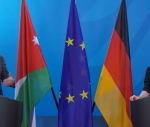You are here
Stalemated talks
Dec 15,2021 - Last updated at Dec 15,2021
It will be a disaster for this region if the Vienna talks fail to rescue the 2015 agreement curbing Iran’s nuclear programme in exchange for lifting crushing sanctions imposed after the US aborted the accord in 2018.
Having previously opposed the deal, Gulf countries now support it and have begun to normalise relations with Iran. During last month’s talks between the US and Gulf Cooperation Council members called for a “mutual return to full compliance with the JCPOA”, the Joint Comprehensive Plan of Action. The US said this switch was “quite striking”. While the US and regional powers agree that Iran must be prevented from acquiring nuclear weapons, the US Central Intelligence Agency Director William Burns said last week the agency “doesn’t see any evidence that Iran’s Supreme Leader [Ayatollah Ali Khamenei] has made a decision to move to weaponise its nuclear programme”. His statement is in line with Tehran’s contention that its nuclear programme is peaceful and there is no desire to build bombs.
Iran did preliminary research on weaponising nuclear energy before 2003 but dropped the idea and the International Atomic Energy Agency (IAEA), which monitors Iran’s nuclear facilities, has reported that no weponisation is involved.
Following the US abandonment of the nuclear deal in 2018, Iran waited in vain for a year for Europe to find a way to get round US sanctions and continue trading with Iran but Tehran began to breach its commitments when this did not happen because the US, in violation of the JCPOA, threatened European and other countries with secondary sanctions if they dealt with Iran.
This led Iran to defy limits on uranium enrichment by purifying it from 3.6 to 20 per cent and then to 60 per cent (90 per cent is needed to build bombs). Iran exceeded the amount of enriched uranium it was allowed to store and gradually limited monitoring by IAEA inspectors. Meanwhile, the US has piled on more than 1,500 sanctions on Iran with the aim of forcing Tehran to capitulate to Washington’s demands. Tehran has stood fast despite Donald Trump’s “maximum pressure” campaign and incumbent President Joe Biden’s failure to honour his pledge to re-join the deal and his retention of Trump’s punitive policy. Biden’s behaviour has led to concern in Saudi Arabia and the Gulf countries over the fate of the JCPOA.
Saudi intelligence and other officials have held four meetings since April in Baghdad with their Iranian counterparts and the countries’ foreign ministers met on the sidelines of the opening of the UN General Assembly. Ahead of the resumption of negotiations in Vienna, UAE national security adviser Shaikh Tahnoon Bin Zayed, brother of the de facto ruler, Shaikh Mohammed Bin Zayed, paid a visit to Tehran met Ali Shamkhani, head Iran’s national security council and President Ebrahim Raisi. The aim of the visit was, reportedly, to rescue the nuclear deal.
There is concern that the collapse of the Vienna talks could lead to US and Israeli military strikes on Iran’s nuclear infrastructure which could risk Iranian retaliation against Saudi Arabia and the Gulf countries. Their governments know that the US cannot and will not protect them from all Iranian ballistic missiles while Iran’s Lebanese ally, Hizbollah, could respond to Israeli bombing of Iran with rockets on Tel Aviv. The entire region could be engulfed in yet another unwanted, unwarranted war. Although Israel has been lobbying for such a war for years, it would be unwarranted because Iran has no nuclear weapon and, so far, does not intend to build one. Israel, the sole regional power with nuclear bombs, is said to have 200.
While agreeing that the nuclear deal must be revived, Gulf countries have different views on restoring relations with Tehran and reopening business, trade and investment once sanctions
They have been lifted or, at least, eased. Dubai, in particular, has had longstanding commercial and banking tiesto Iran which were expected to grow after the JCPOA was implemented in January 2016. Oman, which has adopted a neutral stance toward Iran could be expected to benefit as well.
Gulf normalisation with Iran could also ease tensions and promote correct if not warm relations among governments across the region. Gulf countries could boost efforts to reconcile with Iranian allies Iraq and Syria and reach a modus vivendi with Hizbollah in Lebanon. As far as Beirut is concerned this could enable the government under Prime Minister Najib Mikati to function relatively normally after weeks of failure to meet. There could, even, be movement towards a ceasefire in the stalemated war in Yemen.
Unfortunately, the Western powers remaining in the nuclear deal — France, Britain and Germany — have lined up behind the US while Russia and to a lesser extent China, the other two remaining signatories, have backed Iran. Such polarisation could wreck the deal. Iran demands a return to the situation before Trump pulled out of the JCPOA: US recommitment and cancellation of all sanctions consistent with the JCPOA and imposed since Trump abandoned it. Additionally, Iran seeks guarantees that Biden or his successor would not abrogate the deal a second time and verification that sanctions have been lifted. On the latter issue, Iran mistrusts both the US and Europe as the Obama administration did not end secondary sanctions on foreign governments, companies, and banks, as mandated by the JCPOA, after its implementation. As a result,Iran did not secure expected benefits from the deal.
The US pledges to lift sanctions consistent with the nuclear deal but wants to maintain sanctions designed to exert pressure on Iran to desist from intervening in regional affairs and developing ballistic missiles. Since Iran rejects the US stand, the talks are likely to be stalemated until one side or the other capitulates or compromises.












